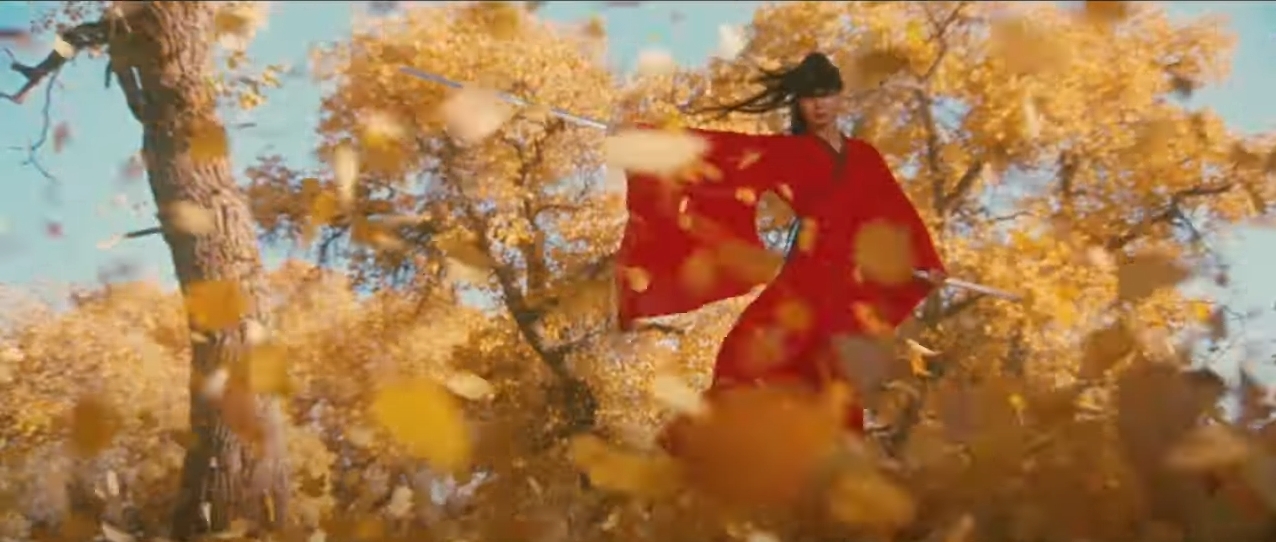I watched Hero

Hero is the first wuxia movie I’ve watched, though I definitely am going to watch more. I’m not especially canny in Chinese history and culture, and I’ll read lots more if I decide to write anything at length about the genre (which I definitely will). Still, here’s my impressions:
- Holy crap, what a pretty movie! The fight between Snow and Moon was especially gorgeous, as the leaves changed from yellow to bloodred over the course of the fight. Every action scene prioritized spectacle, which I like, especiallly since the spectacle in question was grace and motion rather than wanton gore. (Not that gore can’t also be fun, but I don’t think that would have flown in this particular movie.)
- Not knowing how a Chinese audience would approach this movie, I pretty much assumed that the king would be a vicious monster whose death could be portrayed as ultimately good. Only about halfway through did I realize that this wasn’t a story about facing off against Sauron, but one about facing off with George Washington.
- The use of color in the Rashomon-inspired narrative “versions” tickled my brain. There’s the red version of the story, the blue version, the white version, the green version. How these blended with the natural landscapes was super chef’s kiss.
- My biggest takeaway: nothing in this movie tries to be realistic. There’s a whole swordfight that takes place across the surface of a lake. “Wire fu” describes the use of ceiling wires to let actors fly across the battlefield — and I am taking a leap of faith it’s is a harmless portmanteau and not a harmful foreignism, pls let me know if I’m wrong. In any case, people perform completely unapproachable feats. What struck me was the lack of explanation needed beyond “they’re very good at martial arts.” Qinggong and neili are the terms of art I’m seeing used to describe this assumption that, if an action hero trains long enough, they can basically fly around and slash gazillions of arrows out of the sky. Western tastes also include the unrealistic, but usually it’s in the form of a) technology (the “cheerfully amoral celebration of Western military hardware“) and b) extreme pain tolerance. Genius fills the role that qi fills in a wuxia flick. Though cowboy movies display some pretty remarkable aim, too.
- “A warrior’s ultimate act is to lay down his sword.” Great line.






